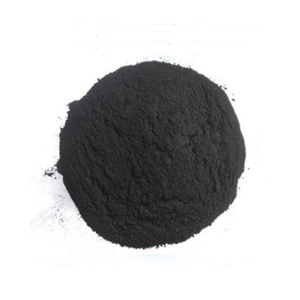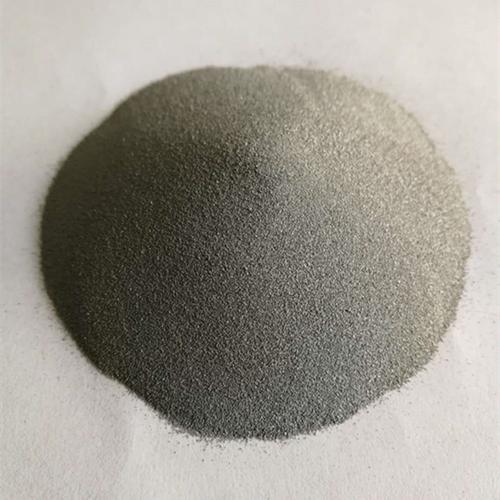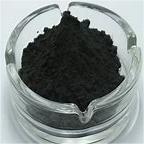Overview of Low density 0.5um Micron Boron carbide B4C for ceramics
Boron Carbide (B4C) is a ceramic compound renowned for its exceptional hardness and wear resistance, ranking just below diamond and cubic boron nitride in terms of hardness. Composed of boron and carbon atoms arranged in a covalently bonded crystal structure, it exhibits unique physical and chemical properties that make it highly valuable in various industrial and military applications. Boron carbide’s high melting point, low density, neutron-absorbing capability, and extreme toughness further distinguish it among advanced materials.
Features of Low density 0.5um Micron Boron carbide B4C for ceramics
-
Extreme Hardness: With a Mohs hardness of around 9.3 to 9.5, boron carbide is one of the hardest materials known, surpassed only by diamond and cubic boron nitride.
-
Lightweight: Despite its hardness, boron carbide has a relatively low density of about 2.52 g/cm³, which makes it an attractive material for lightweight armor systems.
-
Thermal Stability: It possesses excellent thermal stability, maintaining its properties up to temperatures around 2,000°C, making it suitable for high-temperature applications.
-
Neutron Absorption: Boron carbide is a potent neutron absorber due to its boron content, making it ideal for nuclear shielding and control rods.
-
Chemical Resistance: Resistant to most acids and alkalis, except for hydrofluoric acid and hot concentrated alkaline solutions, ensuring durability in corrosive environments.
-
Abrasion Resistance: Its exceptional wear resistance makes it suitable for applications where friction and abrasion are prevalent, such as sandblasting nozzles.

(Low density 0.5um Micron Boron carbide B4C for ceramics)
Parameters of Low density 0.5um Micron Boron carbide B4C for ceramics
The low density 0.5ummicron Boron carbide (B4C) is a highly refractory material that has excellent wear resistance and is commonly used in ceramic manufacturing. Here are some key parameters to consider when selecting B4C:
1. Temperature: High temperatures can cause the material to become brittle and prone to cracking or failure. The optimal temperature range for B4C will depend on its intended use case, such as a component or a composites.
2. Pressure: B4C should be able to withstand high pressures under ideal conditions. This includes maintaining a high pressure range of 300-800kPa at room temperature.
3. Multiplicity: Higher numbers of impurities in B4C result in higher performance and more efficient wear resistant properties. However, too many impurities can also increase the cost of production and reduce performance.
4. Corrosion resistance: The lower the corrosion resistance, the better the material can resist damage from defects such as baked-up crystallographic progression or structural stress.
5. Metal-to-carbide ratio: The metal-to-carbide ratio is critical for the mechanical properties of B4C, including strength, modulus, and ductility. A higher ratio results in stronger materials with better durability and resistance to wear and tear.
6. Alloys and Actinite interactions: In addition to the physical properties listed above, B4C may also exhibit increased surface roughness due to actinite interaction with the carbide bonds.
Overall, choosing the right material for a given application will depend on the specific requirements of the product and the desired level of performance. It’s important to carefully select the right mix of impurities, metals, and crystallographic behavior to achieve the best results.

(Low density 0.5um Micron Boron carbide B4C for ceramics)
Applications of Low density 0.5um Micron Boron carbide B4C for ceramics
-
Armor Systems: Widely used in body armor, vehicle armor, and bulletproof vests due to its lightweight and superior protection capabilities.
-
Nuclear Applications: As control rods and shielding material in nuclear reactors because of its neutron absorbing properties.
-
Abrasive and Cutting Tools: In grinding wheels, polishing powders, and cutting tools due to its hardness and wear resistance.
-
Industrial Nozzles: For sandblasting and water jet cutting applications where resistance to wear and erosion is critical.
-
Military and Defense: As a component in armor-piercing projectiles and defensive systems.
Company Profile
MyCarbides is a trusted global chemical material supplier & manufacturer with over 12-year-experience in providing super high-quality carbides and relative products.
The company has a professional technical department and Quality Supervision Department, a well-equipped laboratory, and equipped with advanced testing equipment and after-sales customer service center.
If you are looking for high-quality carbide materials and relative products, please feel free to contact us or click on the needed products to send an inquiry.
Payment Methods
L/C, T/T, Western Union, Paypal, Credit Card etc.
Shipment
It could be shipped by sea, by air, or by reveal ASAP as soon as repayment receipt.
FAQs of Low density 0.5um Micron Boron carbide B4C for ceramics
Q: Is Low density 0.5um Micron Boron carbide B4C for ceramics toxic?
A: Pure boron carbide is generally considered safe to handle. However, during machining or grinding, dust inhalation can be a concern, requiring proper ventilation and protective equipment.
Q: Can Low density 0.5um Micron Boron carbide B4C for ceramics be machined?
A: Due to its extreme hardness, machining boron carbide is difficult and requires specialized techniques and diamond tooling. Grinding, EDM (Electrical Discharge Machining), or laser cutting are common methods.
Q: How does Low density 0.5um Micron Boron carbide B4C for ceramics compare to tungsten carbide in terms of hardness?
A: Low density 0.5um Micron Boron carbide B4C for ceramics is harder than tungsten carbide, with a Mohs hardness of around 9.3 to 9.5 compared to tungsten carbide’s 8.5 to 9.
Q: What is the primary use of Low density 0.5um Micron Boron carbide B4C for ceramics in the military sector?
A: Low density 0.5um Micron Boron carbide B4C for ceramics is primarily used in the military for body armor, armored vehicles, and as a component in armor-piercing ammunition due to its combination of hardness, light weight, and ballistic performance.
Q: Can Low density 0.5um Micron Boron carbide B4C for ceramics be used in high-temperature applications?
A: Yes, Low density 0.5um Micron Boron carbide B4C for ceramics maintains its structural integrity and properties up to very high temperatures, making it suitable for use in extreme heat environments such as furnace linings and high-temperature ceramics.

(Low density 0.5um Micron Boron carbide B4C for ceramics)





